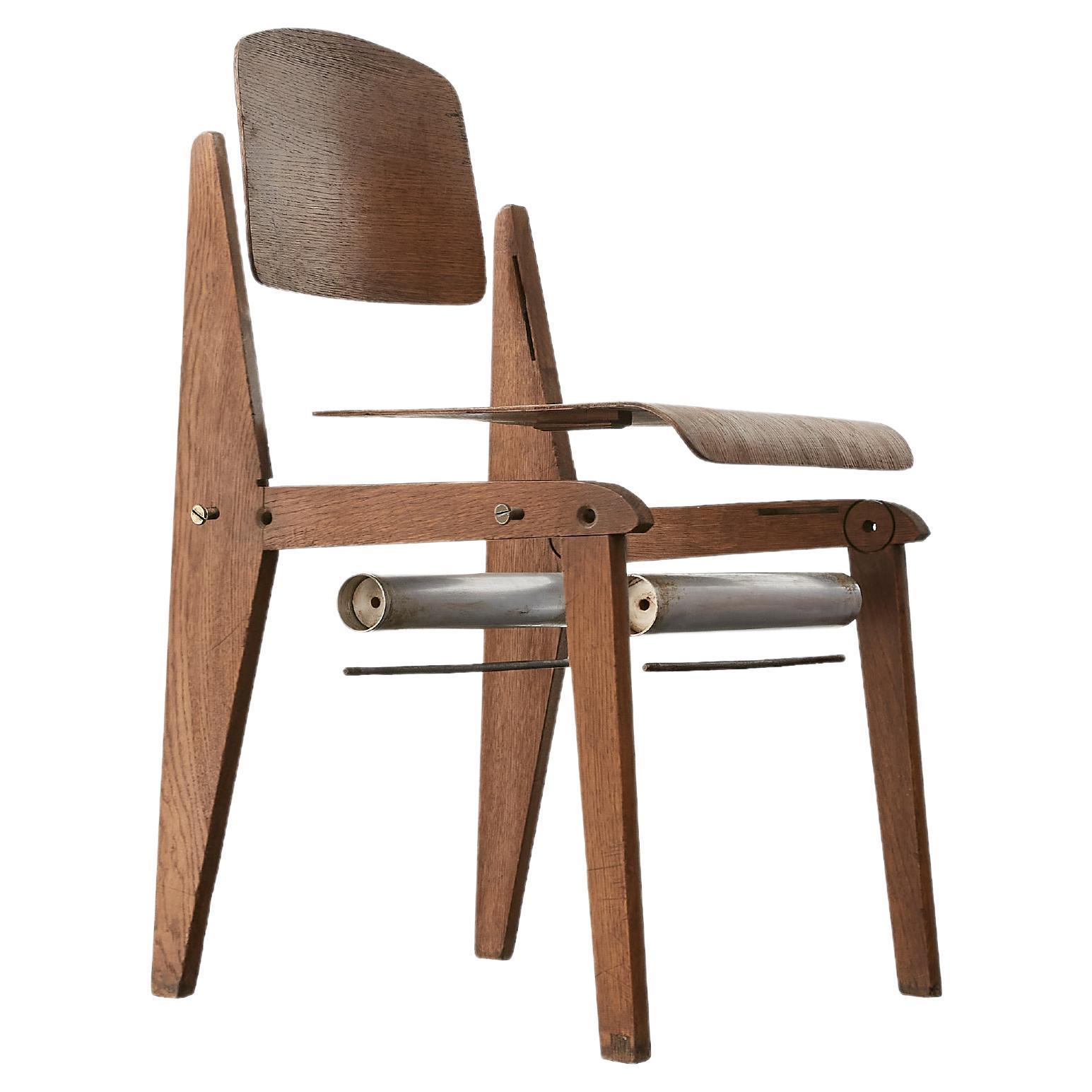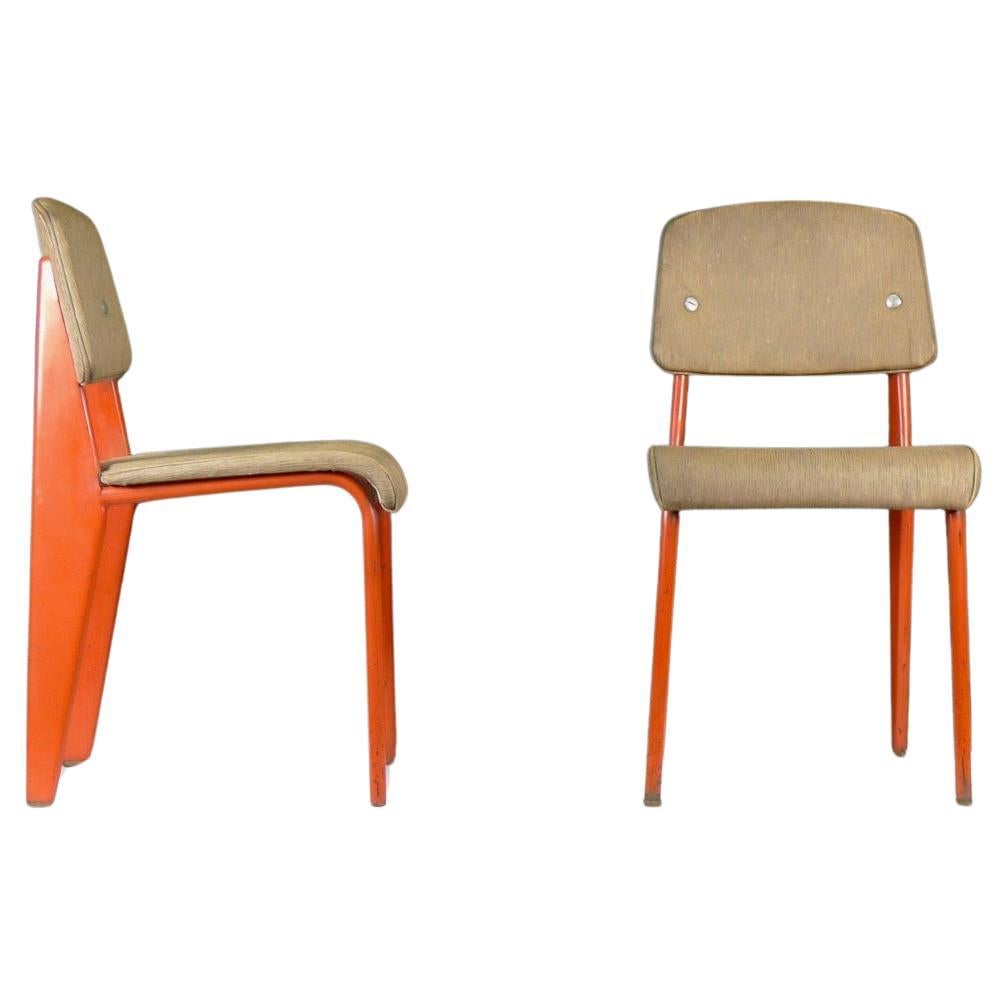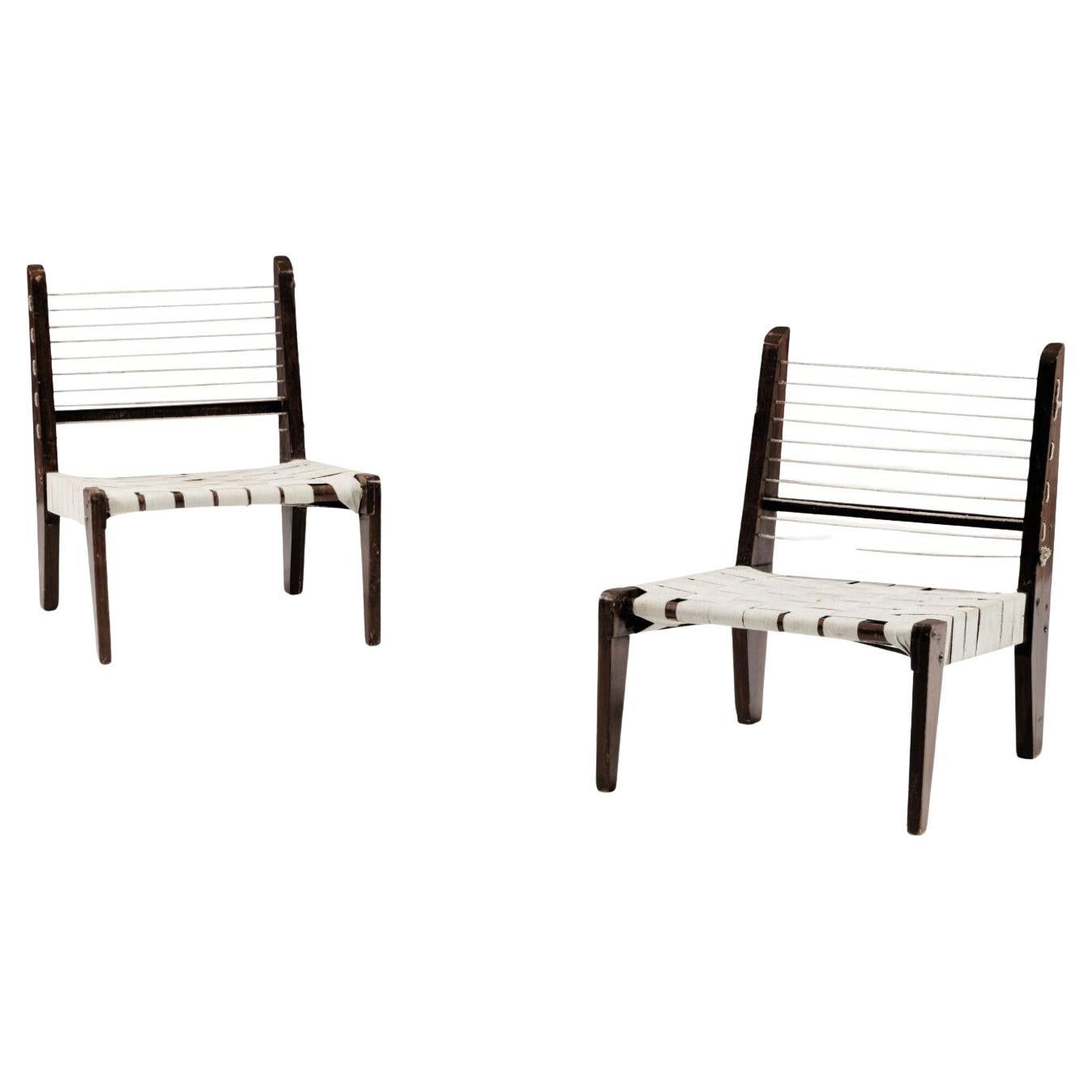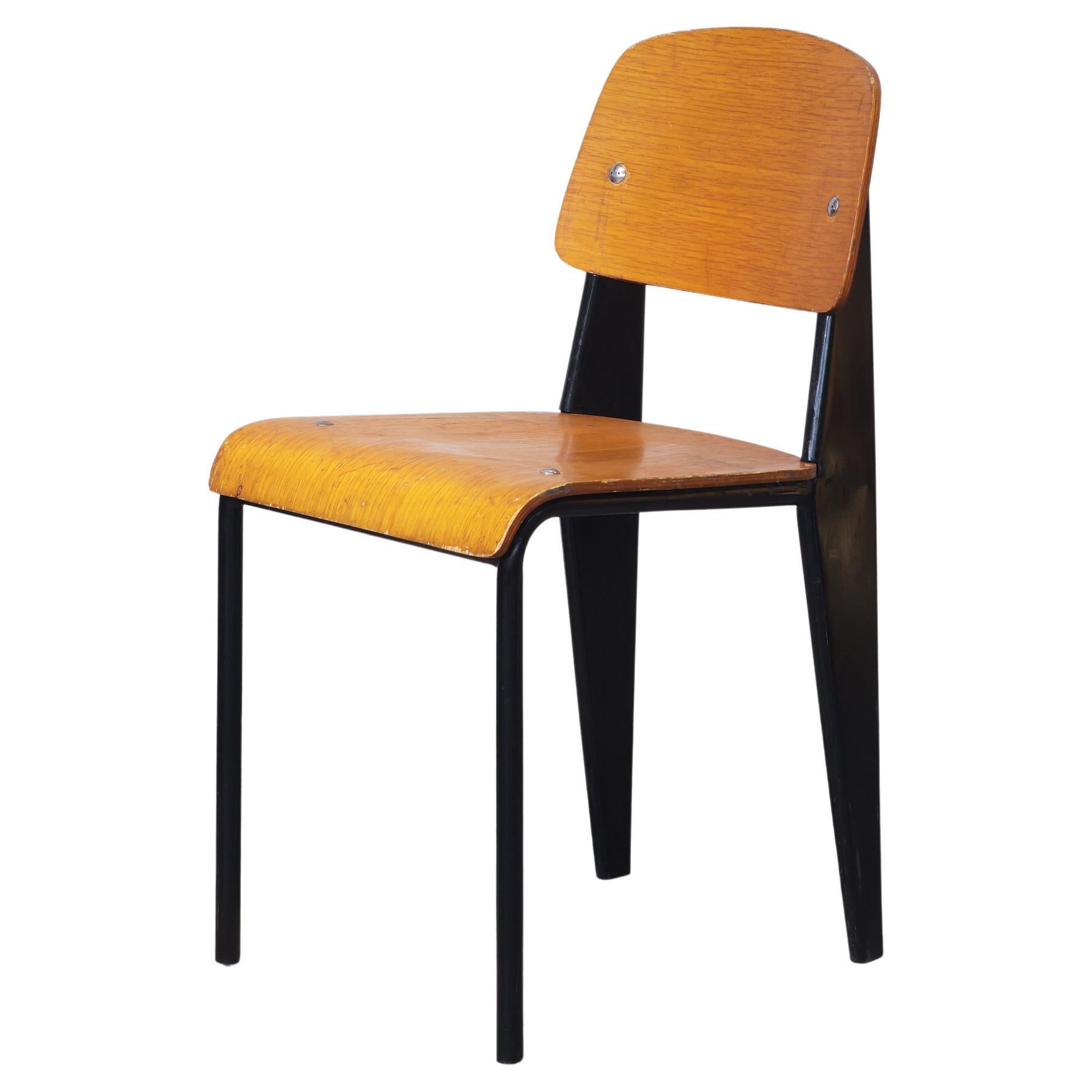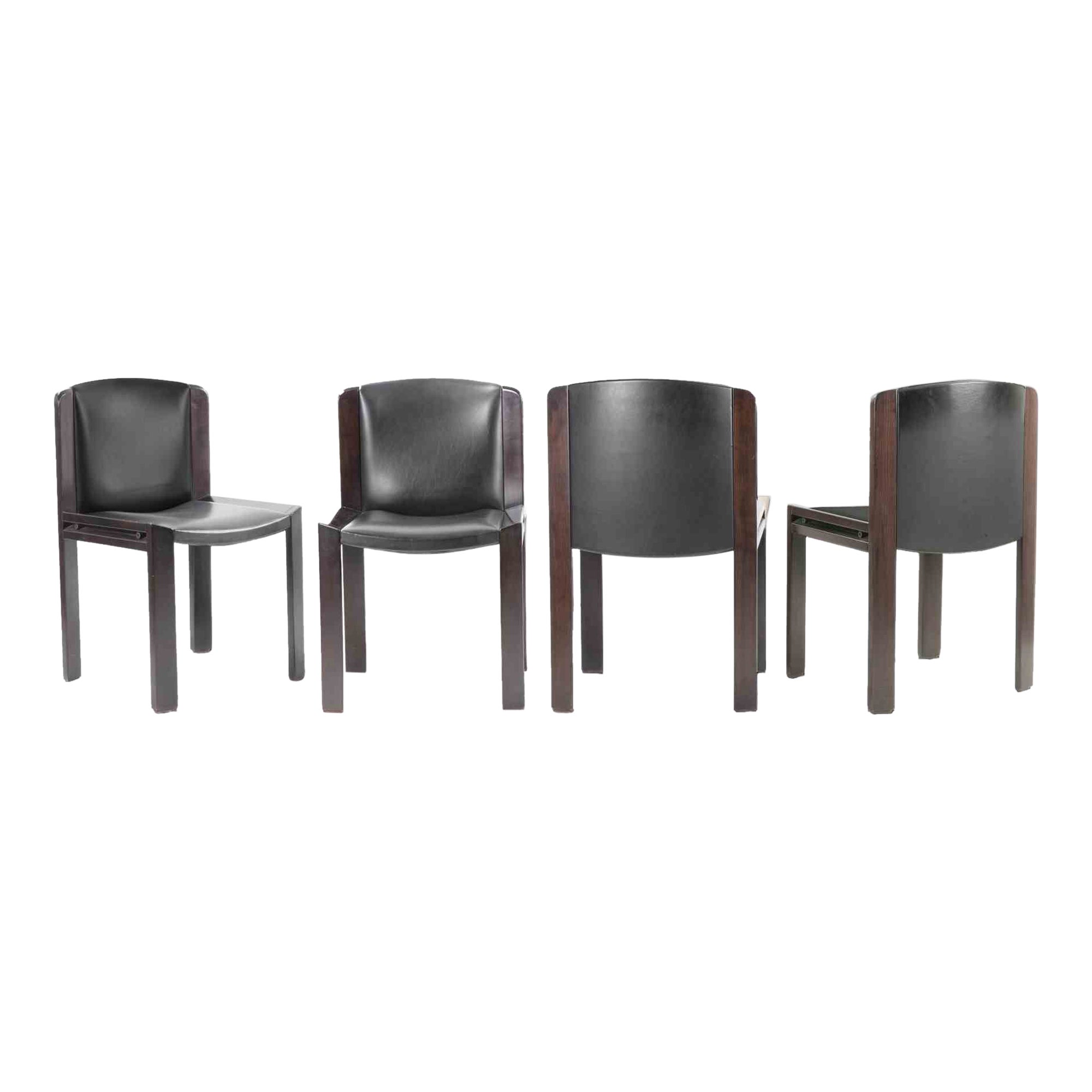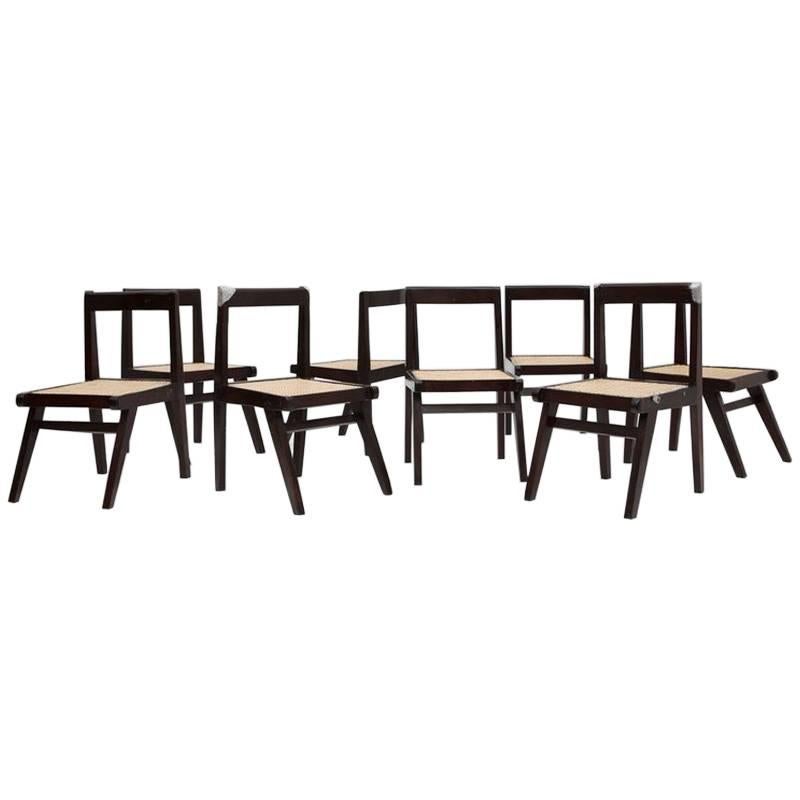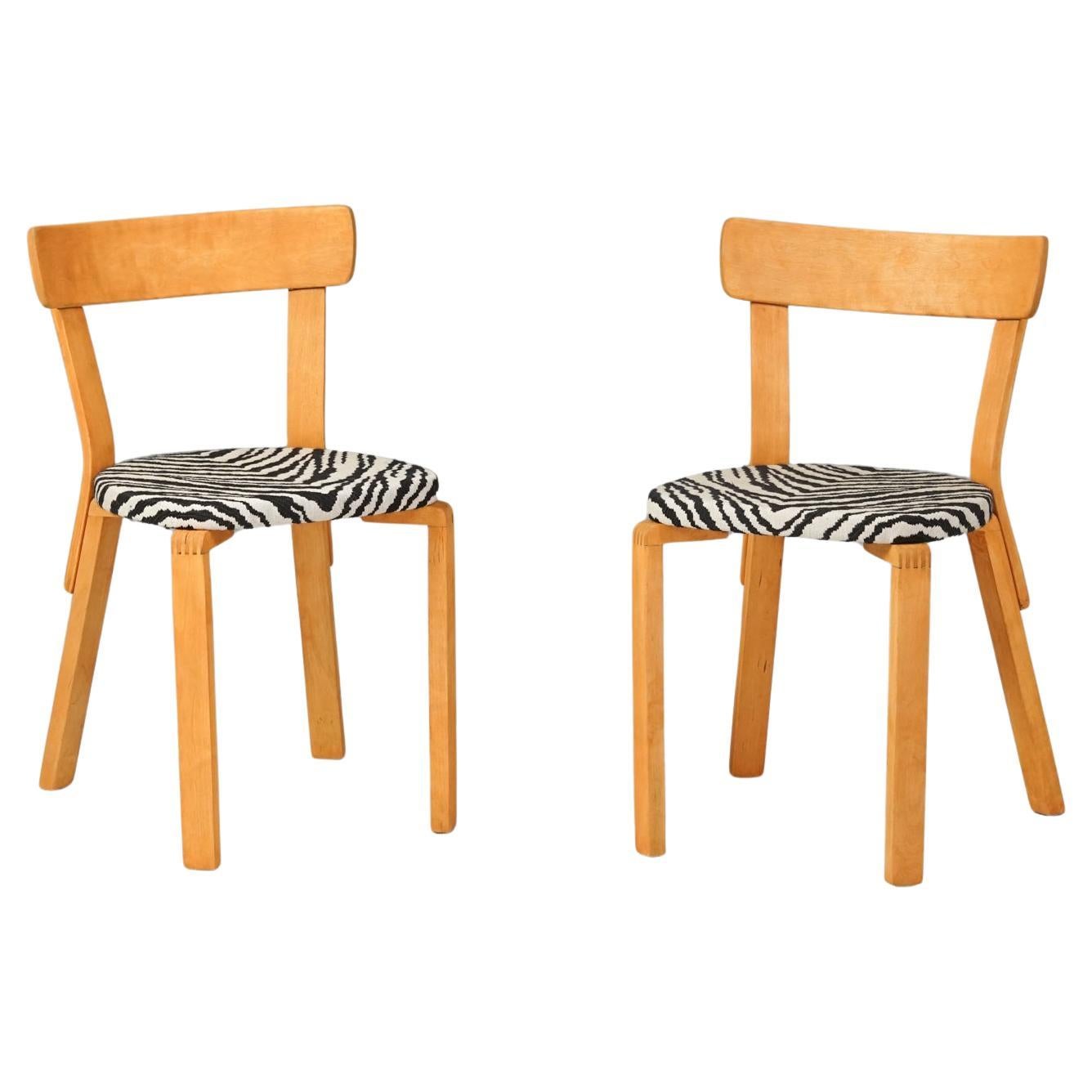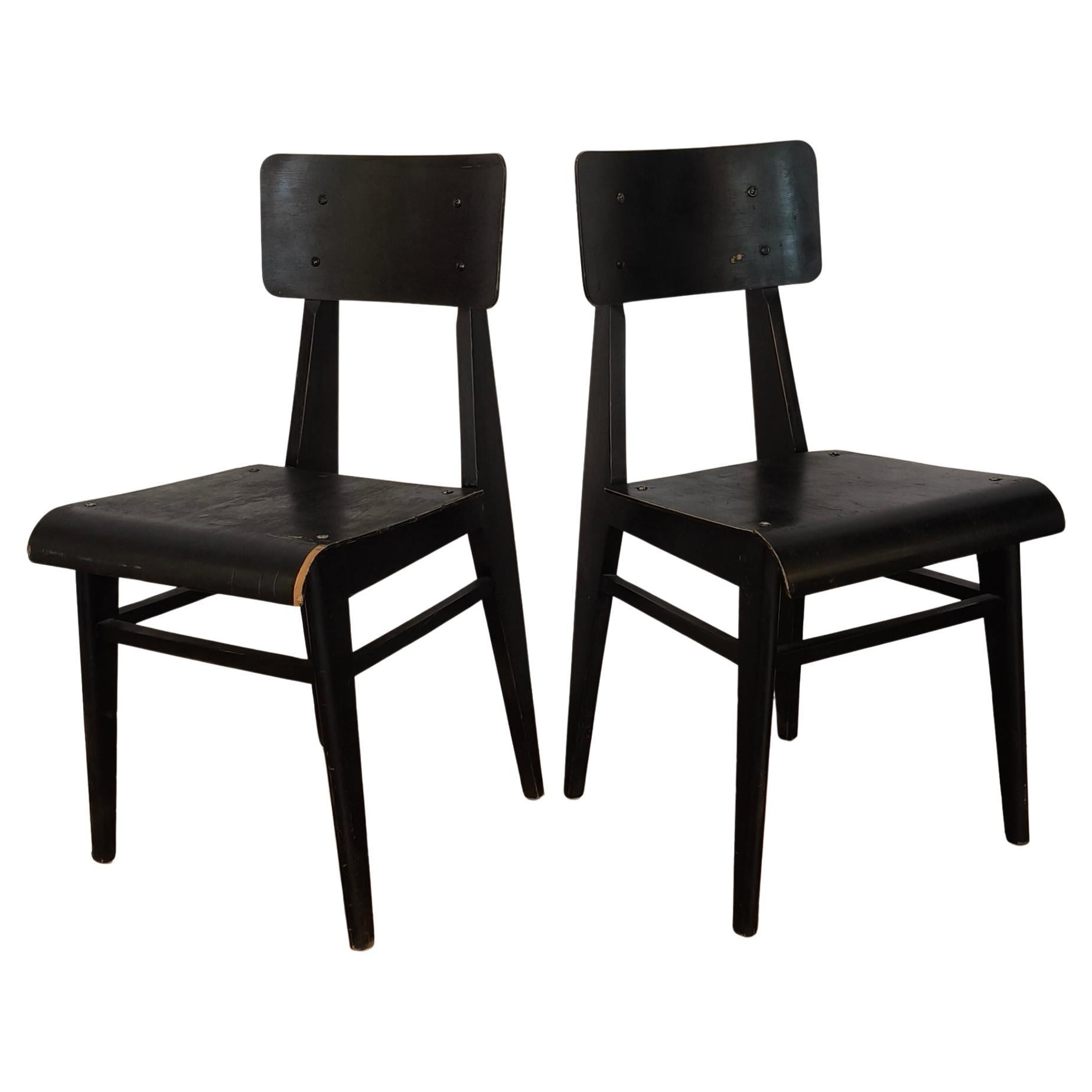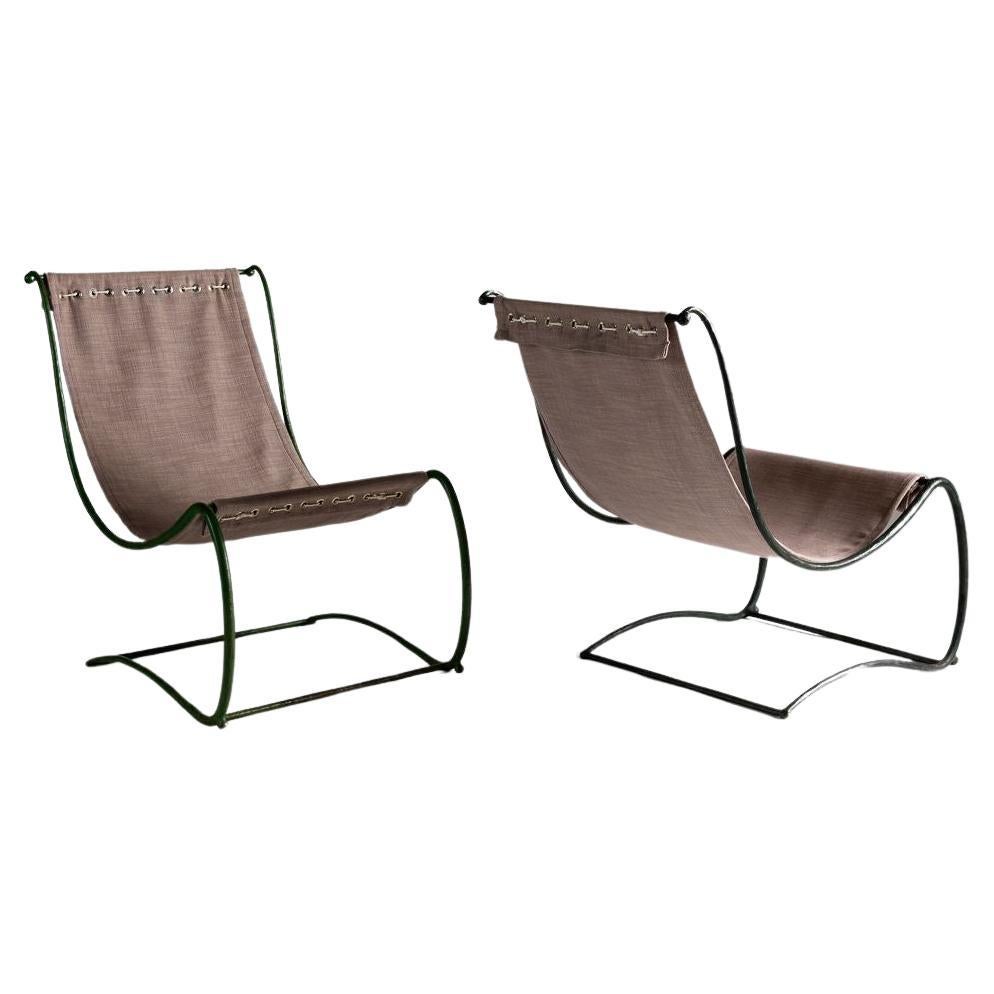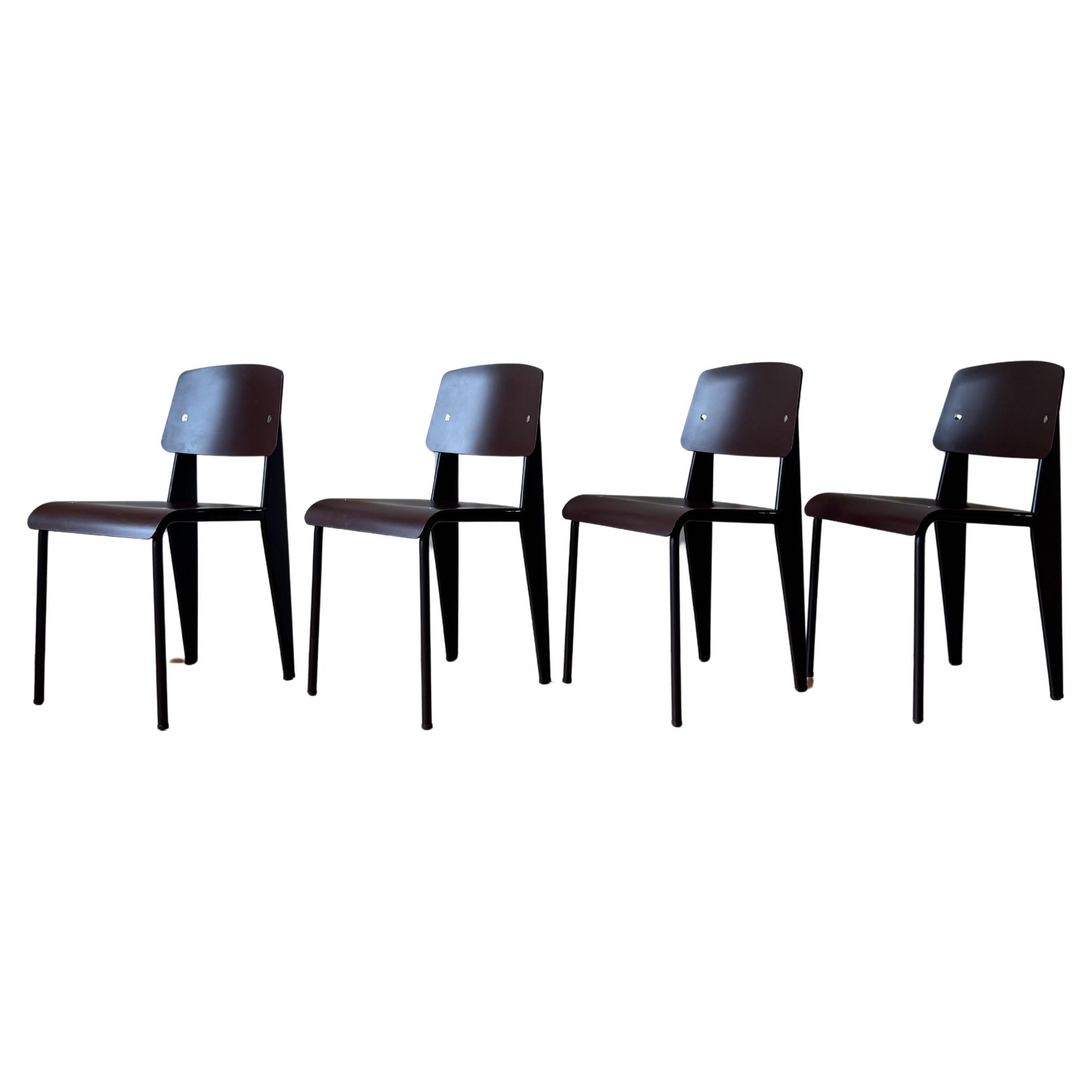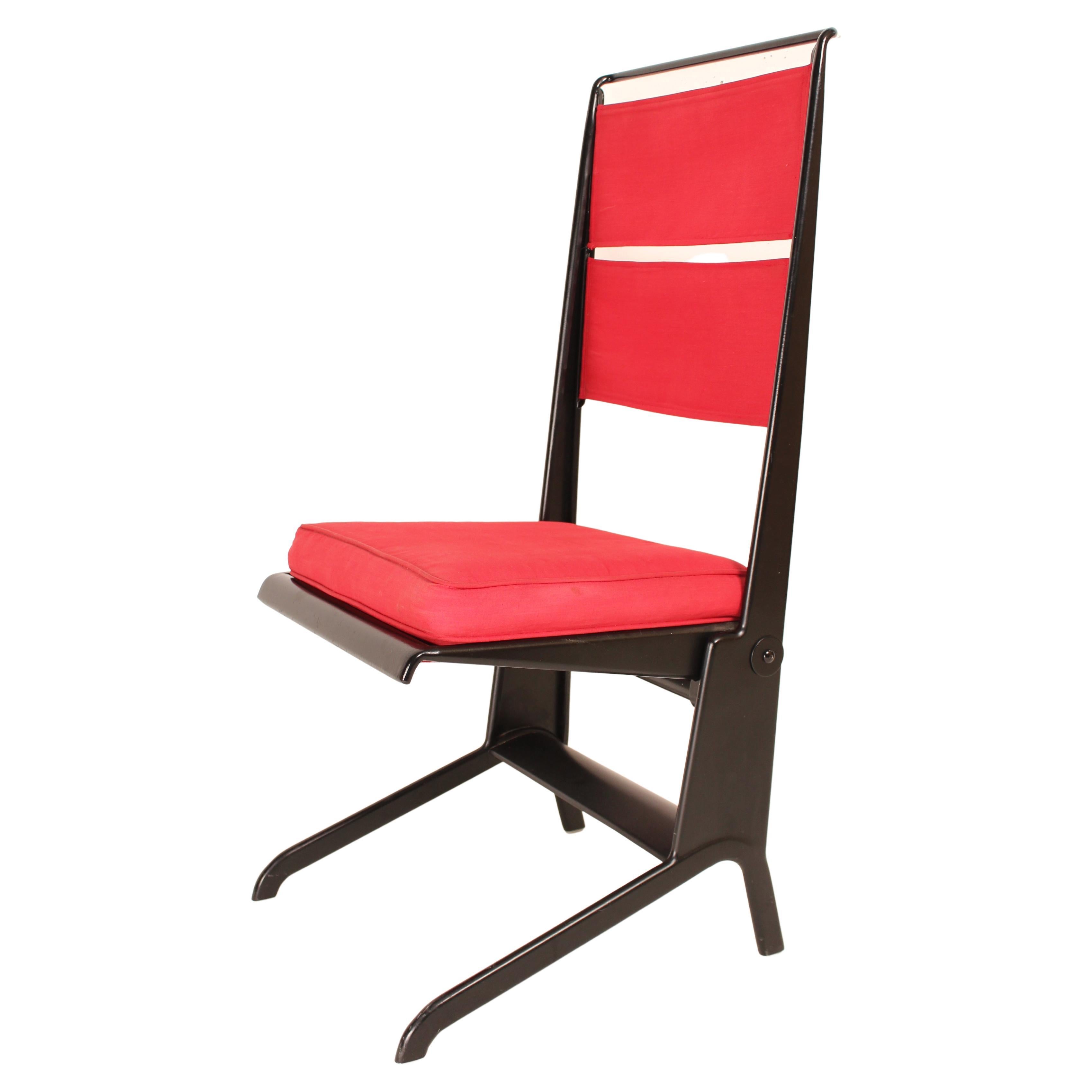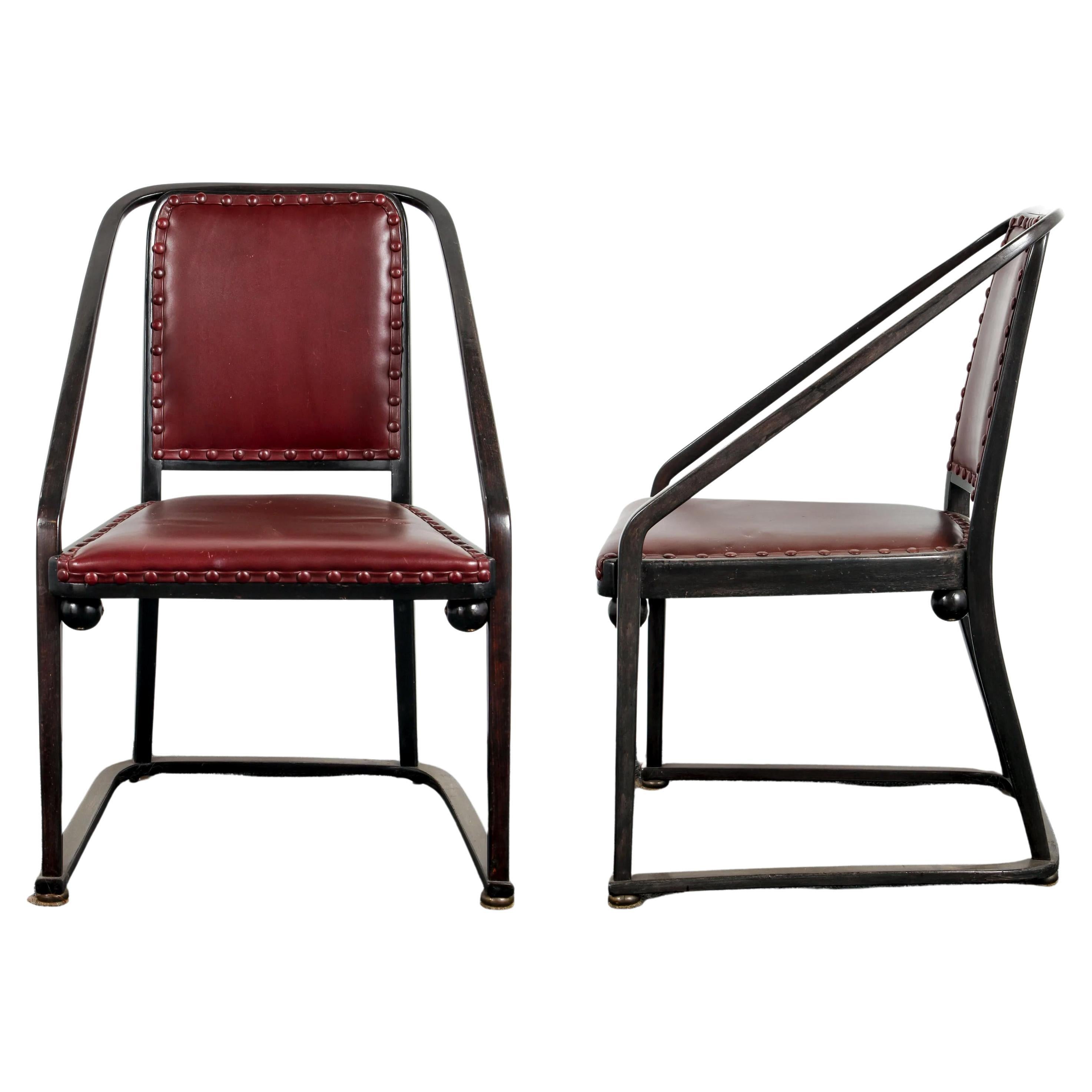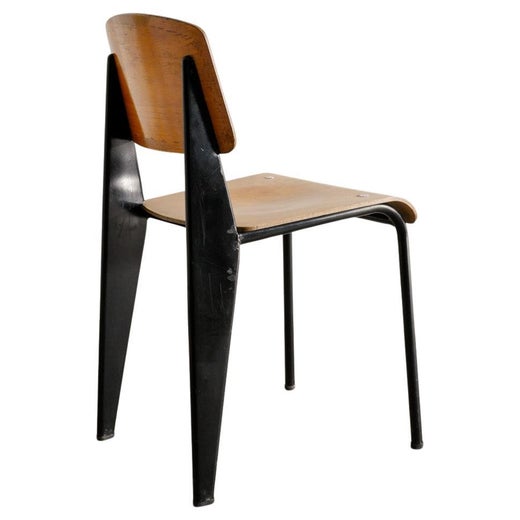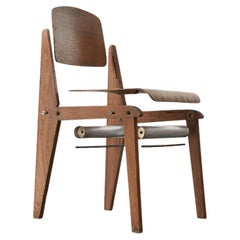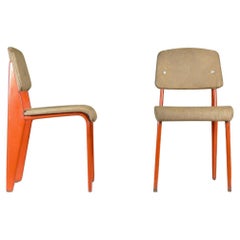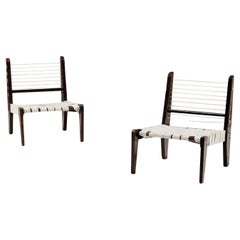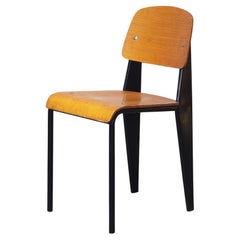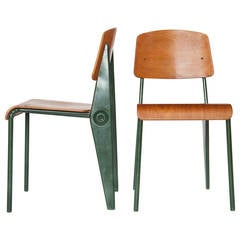
Pair of Rare Model No. 300 Demountable Chairs by Jean Prouvé
View Similar Items
Pair of Rare Model No. 300 Demountable Chairs by Jean Prouvé
About the Item
- Creator:Jean Prouvé (Designer)
- Dimensions:Height: 31.75 in (80.65 cm)Width: 18.5 in (46.99 cm)Depth: 19.75 in (50.17 cm)Seat Height: 17.75 in (45.09 cm)
- Style:Modern (Of the Period)
- Materials and Techniques:
- Place of Origin:
- Period:
- Date of Manufacture:1952
- Condition:Wear consistent with age and use. Steel legs are repainted. Darkened wood on seat and back.
- Seller Location:Brooklyn, NY
- Reference Number:1stDibs: LU137322421612
Jean Prouvé
Engineer and metalsmith, self-taught designer and architect, manufacturer and teacher, Jean Prouvé was a key force in the evolution of 20th-century French design, introducing a style that combined economy of means and stylistic chic. Along with his frequent client and collaborator Le Corbusier and others, Prouvé, using his practical skills and his understanding of industrial materials, steered French modernism onto a path that fostered principled, democratic approaches to architecture and design.
Prouvé was born in Nancy, a city with a deep association with the decorative arts. (It is home, for example, to the famed Daum crystal manufactory.) His father, Victor Prouvé, was a ceramist and a friend and co-worker of such stars of the Art Nouveau era as glass artist Émile Gallé and furniture maker Louis Majorelle. Jean Prouvé apprenticed to a blacksmith, studied engineering, and produced ironwork for such greats of French modernism as the architect Robert Mallet-Stevens. In 1931, he opened the firm Atelier Prouvé. There, he perfected techniques in folded metal that resulted in his Standard chair (1934) and other designs aimed at institutions such as schools and hospitals.
During World War II, Prouvé was a member of the French Resistance, and his first postwar efforts were devoted to designing metal pre-fab housing for those left homeless by the conflict. In the 1950s, Prouvé would unite with Charlotte Perriand and Pierre Jeanneret (Le Corbusier’s cousin) on numerous design projects. In 1952, he and Perriand and artist Sonia Delaunay created pieces for the Cité Internationale Universitaire foundation in Paris, which included the colorful, segmented bookshelves that are likely Prouvé’s and Perriand’s best-known designs. The pair also collaborated on 1954’s Antony line of furniture, which again, like the works on 1stDibs, demonstrated a facility for combining material strength with lightness of form.
Prouvé spent his latter decades mostly as a teacher. His work has recently won new appreciation: in 2008 the hotelier Andre Balazs purchased at auction (hammer price: just under $5 million) the Maison Tropicale, a 1951 architectural prototype house that could be shipped flat-packed, and was meant for use by Air France employees in the Congo. Other current Prouvé collectors include Brad Pitt, Larry Gagosian, Martha Stewart and the fashion designer Marc Jacobs.
The rediscovery of Jean Prouvé — given not only the aesthetic and practical power of his designs but also the social conscience his work represents — marks one of the signal “good” aspects of collecting vintage 20th-century design. An appreciation of Prouvé is an appreciation of human decency.
Find antique Jean Prouvé chairs, tables, chaise longues and other furniture on 1stDibs.
You May Also Like
Mid-20th Century French Mid-Century Modern Chairs
Aluminum
Vintage 1950s French Mid-Century Modern Chairs
Metal, Enamel
Vintage 1950s Indian Mid-Century Modern Chairs
Canvas, Rope, Teak
Mid-20th Century French Modern Chairs
Steel
Vintage 1960s Italian Chairs
Leather, Wood
Vintage 1950s Indian Chairs
Teak
